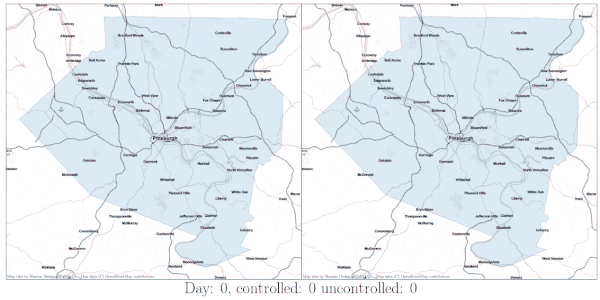The PLAI group project “Planning as Inference in Epidemiological Dynamics Models” has been awarded CIFAR’s AI and COVID-19 Catalyst Grant to support continued modeling as it applies to COVID-19.
More information about the CIFAR Catalyst Grants for COVID-19 available here.
About the Project
The COVID-19 pandemic has exposed several weaknesses in public health preparedness in face of infectious diseases. A major challenge has been real-time policy analysis and resource planning: policy analysts have limited tools to explore policy options and their impact on the trajectory of the pandemic or socioeconomic factors, with a lot of their work being based on exploring predefined scenarios. While policies such as large-scale social distancing have proved to be effective in controlling the pandemic, how long these policies need to be in place and the evolution of the pandemic after these measures are removed is uncertain. This, coupled with the uncertainty in disease characteristics such as incubation period has made policy planning extremely challenging.
Our aim is to automate the process of exploring policy options for disease control. Coupling artificial intelligence tools with strong agent-based epidemiological models and models of other socioeconomic factors affected by policy interventions, we believe we can improve situational awareness and policy planning in face of a pandemic like COVID-19.
Learn more about the project here.

Progression of a simulated influenza epidemic in Allegheny county under controlled (left) and uncontrolled (right) scenarios. Each red dot represents a household with at least one infected resident. We see a control policy focusing on hygiene, rapid school closures, and isolation of symptomatics “flattens the curve” by slowing the onset of the virus.